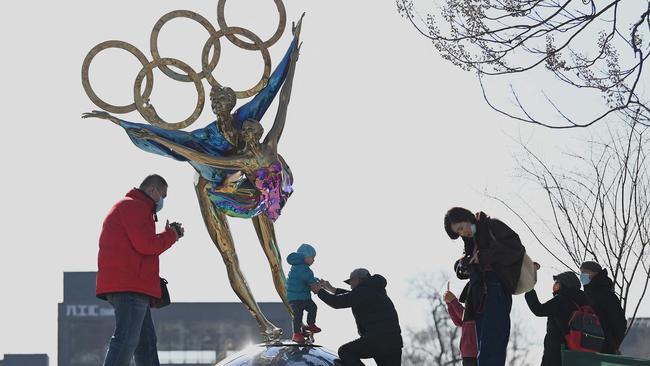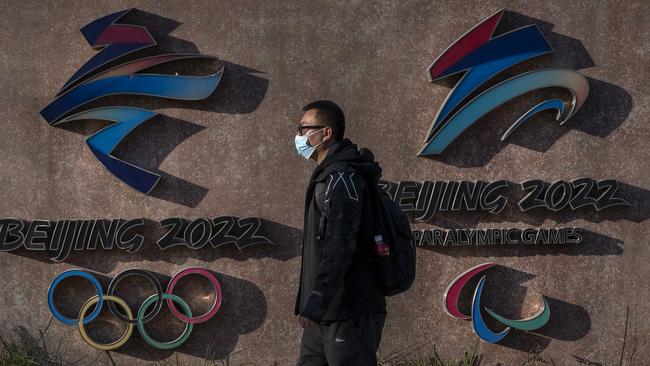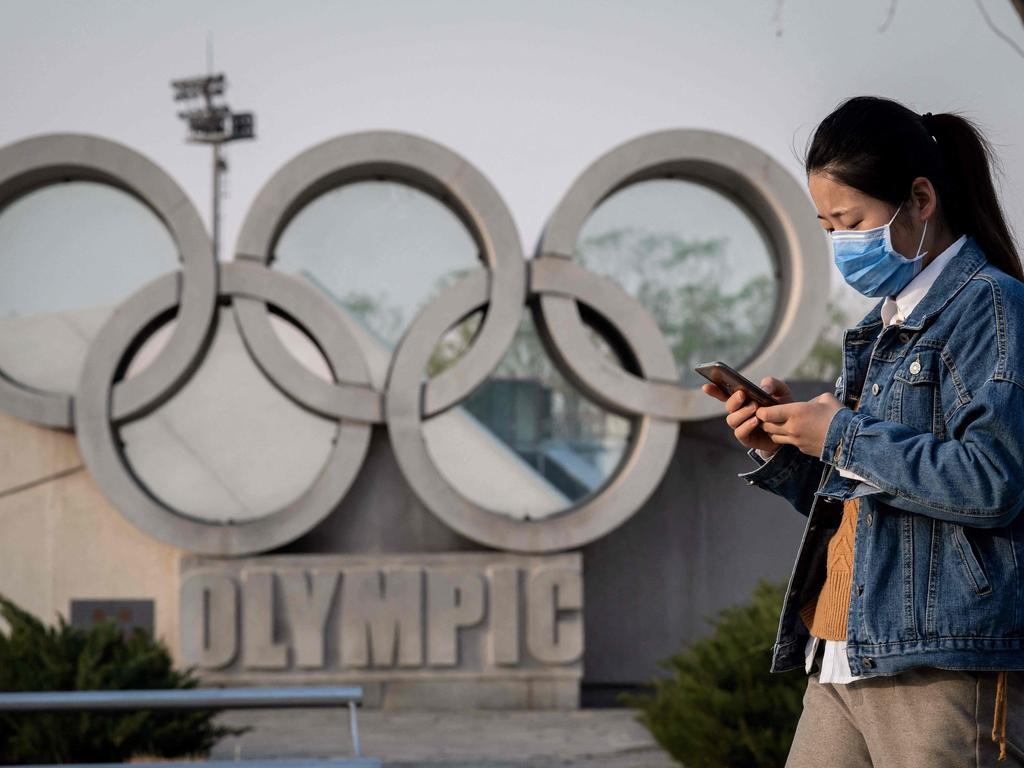
Scott Morrison’s not unexpected move to announce that Australia would be following the US in not sending any politicians or diplomats to the Winter Olympics in Beijing in February has scotched hopes by business leaders that the Games would provide an opportunity for a thaw in Australia-China relations.
It was only in August that the head of the Business Council’s global engagement committee, Warwick Smith, an adviser to Perth businessman Kerry Stokes and a former chair of the Australia China Council, was suggesting that the Winter Games could provide an opportunity to break the political ice with Australia’s largest trading partner.
Smith told this commentator the Winter Olympics could provide a “constructive opportunity” for much-needed face-to-face meetings between Australians and the Chinese.
“Sport is often an adjunct to diplomacy,” said Smith, a former federal sport minister ex-chair of the Australian Sports Commission. “It provides an opportunity for informal meetings, dialogue and progress.”
Smith was suggesting that the Winter Games could provide an opportunity for a senior business delegation from Australia to attend the Olympics.
Now even that modest ambition seems like a long time ago.
Since then, diplomatic relations between Australia and China have worsened with the announcement of the AUKUS submarine deal and Wednesday’s announcement of the “diplomatic boycott” of the Games by Australia – a stance that prompted an immediate hit back from the Chinese Embassy in Canberra, which is now quick off the draw.
And when it comes to business visits, almost every Australian businessperson who would regularly visit China as part of their job has not been there for the past two years because of Covid.
Asked his reaction to the current situation on Wednesday, Smith diplomatically replied by email: “Unfortunate to say the least.”
When it came to business trips to China, he said, there was no appetite to visit the country on business as it would require two weeks in hotel quarantine and another one week at home.
The three-week quarantine requirement is enough to deter anyone except those heading to China for a longer term.
While China has reacted angrily to the announcement by the Morrison government, the real issue is that the move started by the Biden administration this week may also have been designed to head off calls for a full-scale boycott of the Games.
It is one thing to say that Western politicians who were never going to go to the Games anyway will be boycotting the 2022 Olympics – who cares if a few politicians don’t turn up. The serious issue would have been if a groundswell developed, as it did around the world in 1980, for a wholesale boycott of the Games by the athletes.
Australia has been down that track before, with the then Australian Olympic Federation voting by one vote to reject pressure from then prime minister Malcolm Fraser to boycott those Games.

Kerry Stokes’s Seven Network, a long-time supporter of the Olympics, will be breathing a sign of relief that it appears the Games will go ahead as planned with none of the pressure for a boycott by Western nations.
As a report released this week by the Australia China Relations Institute at UTS shows, there are still plenty of Australian companies wanting to do business with China despite political tensions and moves by China, including tariffs on wine and barley and restrictions on the import of Australian beef, timber, lobster and coal.
These include Woodside, Fortescue Metals, Lendlease, Elders, infant formula company Bubs, the Costa Group, Blackmores, Treasury Wine Estates, Cochlear and the Icon Group.
At its height, the Australia China business relationship had a two-way value of $260bn-plus.
Despite everything thrown at it, the business has not fallen away as much as might be expected.
Speaking on a webinar panel on Tuesday for the release of the report, Bubs founder Kristy Carr talked about how the Covid-19 shutdowns and lack of ability for business travel had seen Australia “backtrack” in its overall relationship with Asia over the past two years.
She said Bubs, which has specialised in goats milk-based infant formula, still had a long-term commitment to doing business with China although it was also diversifying into other markets.
“I remain optimistic,” she said about the potential for Australian companies to continue to do business in China. “I have spoken to many businesses, like ourselves, who remain committed to China. We continue to diversify to our other neighbours around Asia but it is a slow build.
“As long as we can continue to find workarounds, the Chinese business community is very willing to continue to do business with Australian companies and build those trusted partnerships.”
Her words would probably surprise many outsiders and readers of the front pages of newspapers, but they are reflective of a continued determination by certain business sectors and leaders in Australia, many of who were quoted in the report, to keep doing business with China despite the political issues, as best they can.
In some ways the Olympics of 2022 and 2008 highlight the differences in ties between Australia and China, and also China and the rest of the world.
The China story of 2008 was almost a celebration of its official “coming out” as a growing economy, opening up to the world in many ways.
The Games of 2022 will be held in an era in which China has strained relations with many countries around the world. The optimism about the growth of the Chinese economy that prevailed in 2008 is being tempered by the nation’s more aggressive global stance.
Former Austrade economist and now UTS professor, Tim Harcourt who hosted the ACRI webinar, recalled the heady days of the Summer Games of August 2008.
Harcourt was in Beijing at the time as part of Austrade’s famous Business Club Australia, which used the Games as a means of promoting business ties between Australia and China.
BHP (then BHP Billiton) was a sponsor of those Olympics, which saw many business people from around the world attending the Games and the associated social and networking events.
Harcourt recalled how the club and Games proved a great business networking opportunity.
Austrade had leveraged the 2000 Olympics in Sydney to develop business contacts for Australia, with its Business Club program designed to have business networking activities at major sporting events.
As Harcourt recalled this week, Austrade estimated that the activities of the club between the 2000 Games in Australia and 2008 Games in China contributed $17bn in trade and investment deals for Australia. He said: “Architects like John Bilmon from PTW met Chinese Olympic officials at Cathy Freeman’s race in Sydney 2000 and ended up winning contracts to build the Watercube and other structures at Being 2008, London 2012 and Rio 2016.”
Harcourt argues that now is a good time to revive the concept as Australia works towards hosting the Olympics of 2032 in Brisbane.
He argues this should start with business networking events with the Women’s World Cup soccer in 2023.






